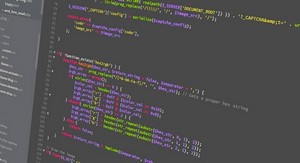C++
AN EXAMPLE
#include
int main()
{
int i=0;
double x=2.3;
char s[]= »Hello »;
cout<<i<<endl;
cout<<x<<endl;
cout<<s<<endl;
return 0;
}
1.cpp
LEXICAL ELEMENTS
Identifiers: case sensitive
nCount, strName, Strname
Reservered words
if, else, while
Operators
+, ==, &, &&, ‘? :’
Preprocessor Directives
#include, #if,
Primitive Data Types
| Name | Size (bytes) | Description | Range |
| char | 1 | character or eight bit integer | signed: -128..127
unsigned: 0..255 |
| short | 2 | sixteen bit integer | signed: -32768..32767
unsigned: 0..65535 |
| long | 4 | thirty-two bit integer | signed: -231 .. 231-1
unsigned: 0 .. 232 |
| int | * (4) | system dependent, likely four bytes or thirty-two bits | signed: -32768..32767
unsigned: 0..65535 |
| float | 4 | floating point number | 3.4e +/- 38
(7 digits) |
| double | 8 | double precision floating point | 1.7e +/- 308
(15 digits) |
| long double | 10 | long double precision floating point | 1.2e +/- 4932
(19 digits) |
| bool | 1 | boolean value
false → 0, true → 1 |
{0,1} |
Variables declaration & assignments
#include
using namespace std;
int main()
{
int i,j,k;
int l;
i=10;
j=k=l=20; //j=(k=(i=20))
cout<<« i= »<<i<<endl;
cout<<« k= »<<k<<endl;
cout<<« l= »<<l<<endl;
i+=10; //i = i + 10;
i++; //i = i + 1;
cout << « i= »<<i<<endl;
} 2.cpp



